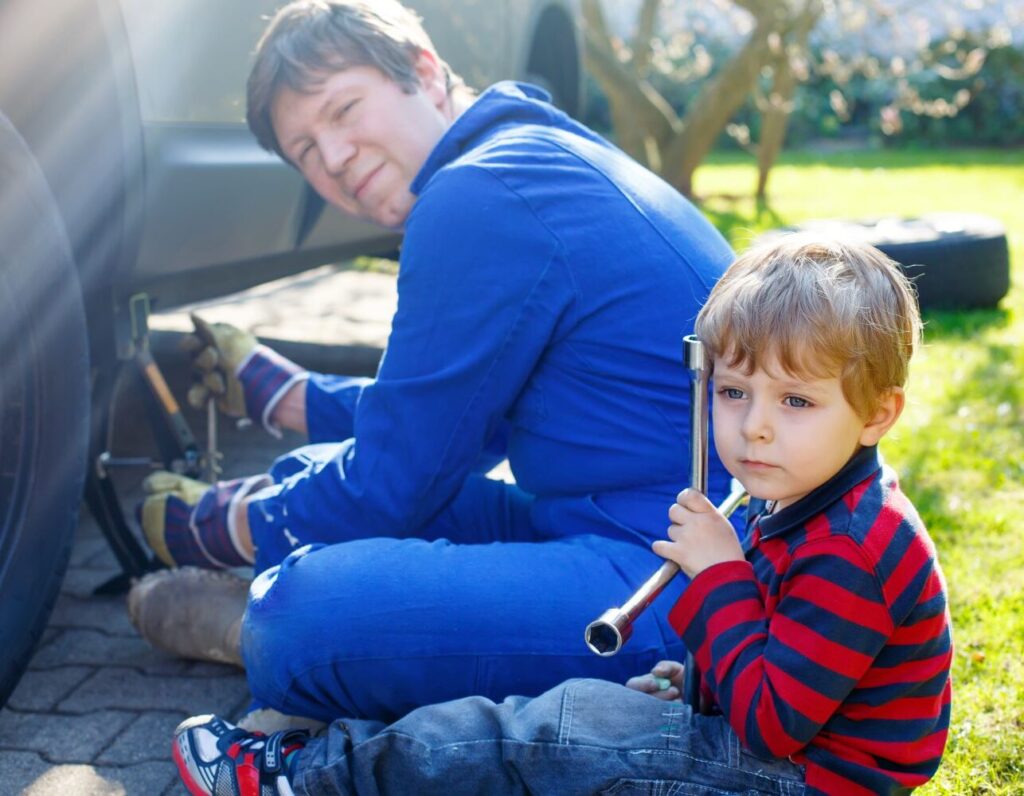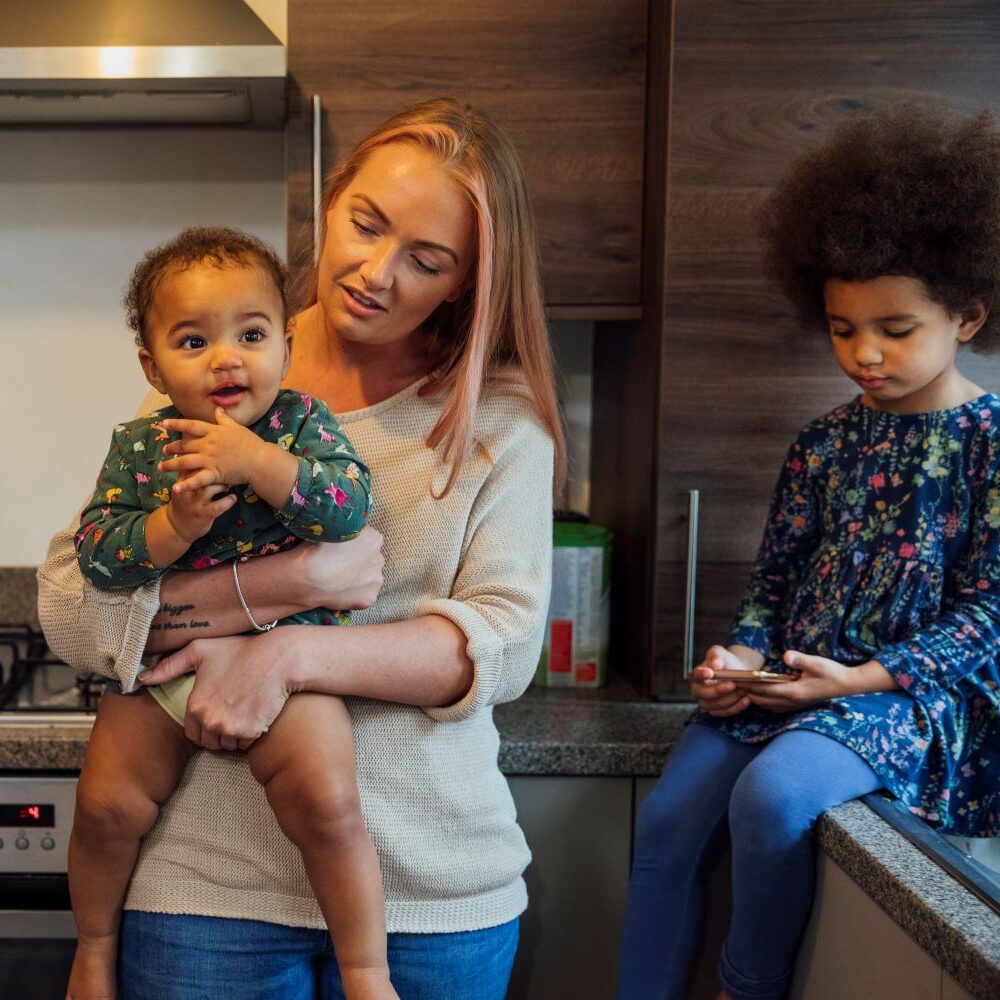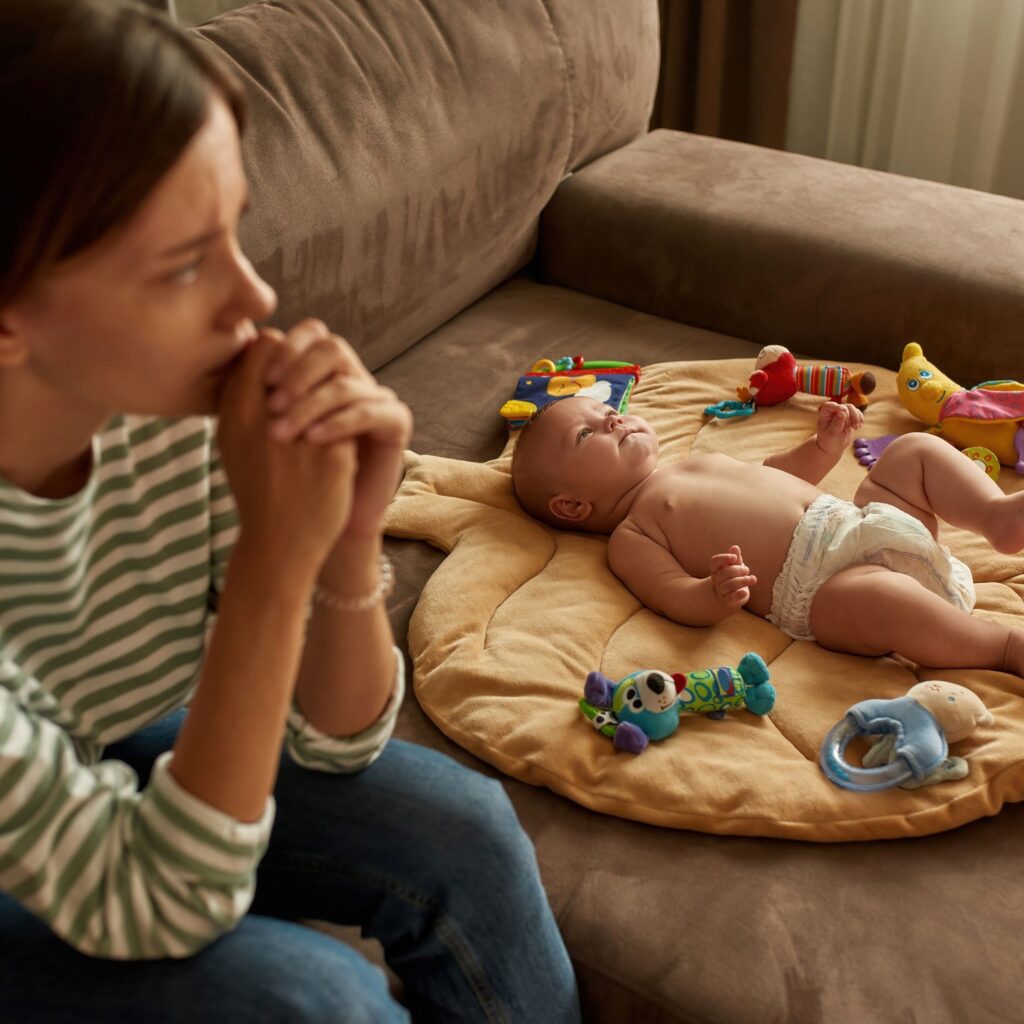We know the pressure many mothers face, especially during the first year. Here Perinatal Coordinator Zian talks about how you can manage some of the pressure that exists on you and your relationships, and prevent parental burnout.
Family Action’s perinatal services support parents from birth until their child is 12 months old, but we felt strongly that the pressures of parenting don’t just finish after a year. There are a number of common ways of approaching stress that just seem to work– so I thought I’d share our tips on how to prevent parental burnout with you here.
It’s really important for parents to look after themselves. This sounds simple but a lot of us can feel guilty about not thinking solely about their children 24 hours a day.
Always look after you
For people who are struggling with this I would say that you ARE doing it for your child, as you need to be healthy and happy or you’ll struggle to look after others.
You don’t have to do much to make a difference, and we often advise parents to try and plan small things every day that will help give them a more positive outlook, such as taking a small walk in a park or through the local woods. Getting out there in nature spending ten minutes in the sunshine helps with the release of all those good hormones that can help prevent parental burnout. It also allows us to consider the day with a fresh perspective. I know a lot of this advice can focus on mums, but we also see a lot of dads feeling guilty and not looking after themselves too, so make sure you’re both taking time for yourselves.

Relationships
It can be really tough raising children and it’s quite common for me to be discussing the pressures of parenthood with one or both parents and find out that they’re having a tough time in their relationship too. It’s a real journey you’re going on and it’s hard because so much of it is new, but it’s important to remember you’re on it together.
Families come in all shapes and sizes and feature all kinds of different dynamics but regardless of how you feel about each other – even if you’ve split up – it’s important to work together for the sake of the child. You don’t have to always like them but it’s important to think about what we say in front of our children, as speaking positively about our parenting partner and behaving in a mature way also has a positive impact on our child’s development.
Another reason to be kind is that sometimes criticising a partner for doing something the “wrong” way can place more stress on them and then negatively impact the environment.
Everybody has a different parenting style, so consider if the thing you’re arguing about is actually just a matter of personal preference, and you can let them do it their way.
…and more about relationships
So, above I discussed how not to be negative about our partners and relationships when communication is difficult, but even in healthy, positive relationships I’ve found that it can help parents to focus on each other at times. “Date night” is a cliché but there’s a reason we talk about it, as spending time together helps you to separate the difficult and stressful aspects of parenting from the good in your relationship in general.
I’m a parent and I understand: we all want to put 100 per cent into raising our kids – but we also need to remember that we’re also a partner, a friend and even a co-worker. You might laugh but it’s very much like a job: if you don’t like going there you’re going to really struggle to do your best work. So, take time to keep that “office romance” alive!

Don’t second guess yourself
Sometimes in service we struggle with parents absorbing too much conflicting information – it’s no wonder many new mums and dads feel parental burnout creeping up on them. They tell us things like “I can’t pick up my baby lots because I don’t want to spoil them”. In this case specifically we would say that you can’t spoil a child who’s crying because they need comfort and, in fact, you’re listening to the cues your child is giving, and that’s helping them develop healthy pathways that make them feel nurtured and loved.
In general, parents worry too much and battle our motherly instincts. Trust your gut feelings and, where you’re generally not sure about something, make sure you’re looking in the right place for support and guidance – a professional like a doctor or a health visitor.
It’s not that your well-meaning neighbour or friend is “wrong” or that their method doesn’t work: it just might only work for them. You’re a different family and different solutions might be required for the people and children involved.
… And don’t be too hard on yourself.

Call, text, email or web chat FamilyLine
If you’re feeling overwhelmed, worried or upset about any aspect of your family life, FamilyLine is here for you. We offer free emotional support and guidance on family relationships, conflict, parenting, caring, financial worries and more.
Contact FamilyLine











